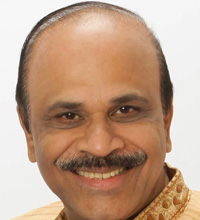In India, family businesses range from small mom-and-pop stores to large conglomerates with equally varied business interests. As their growth has skyrocketed, many have stepped outside their comfort zone to acquire companies in new industries and geographies. Their contribution to India’s economic growth is being increasingly recognized.
While the government helps family businesses with access to capital, expedited approvals, clarity on tax-related matters and greater predictability, family-owned firms need to help themselves — first by adopting professional processes and practices, and second by being more proactive in finding and securing the assistance they need.
Here are a few examples of the unique challenges Indian companies and their advisors face:
- Managing diverse opinions of family members in the business
- Solving internal challenges
- Creating succession plans between siblings and cousins
- Helping younger generations face the difficulties they encounter in proving themselves to the former generation
- Managing differing views between the older generation and the newer generation
- Hiring external professionals who may perceive that career advancement, freedom and decision-making are solely the purview of family members
Given this context, family business advisors in India have evolved over time. The start of family business advising goes back a few decades and looks like this:
- The signature family business advisor in India has been the “elderly person who is the confidant of the family, enjoying its trust by virtue of his longevity and association with the family.” This role comes from the traditional practice of joint family systems. Historically, Indians believed in joint family systems where all generations live under one roof – grandparents, parents, grandsons and the next generation. Only married women who moved to their in-laws’ home. In this system, families were able to manage the differences in the business and the family, including emotions, needs, etc. It was a platform of “interdependence” rather than “independence.” The eldest male in the family always had a say and was a final decision maker. This process was passed on to each generation and respected by each family member. It was not a question of pain or pleasure, but a question of right and wrong.
- Generation 1 family business advisors are typically professionals who have a good career track record and have been an “inner circle member” that allows him or her entry to the family and the business. This entry is based on trust developed over a period of time. The GEN 1 advisor will know the entire inside of the family on all matters. In fact, he or she may learn many things over a period of time that even family members do not know. The scope of entry is decided by the family (primarily by the patriarch) and the boundaries are defined. This practice, however, can result in an intervention that is limited in nature and tends to be biased to a great extent.
- Generation 2 family business advisors are those who have educated themselves in family business management (very few in number), but who, however, have limited exposure to working with the family. Their acceptance is, therefore, often limited and challenged. The hurdle for them is that they are more professional then the trusted advisor. They are more academic in nature and require endorsement for acceptance. Either they come from domain expertise or from a behavioral domain. Behavioral domain people bring in a dimension of the so-called “spiritual.” Spiritual does not mean they are religious — an evolved spirituality is nothing but “inner excellence.” If an advisor comes from the expertise domain, his or her advice to the family is more on the business side rather than the family circle side. If the advisor comes from the spiritual domain, his or her comfort zone is more on emotional challenges and not as much on business progression.
- Generation 3 advisors are those who have been working in the family office of the family business and have gained adequate knowledge about the subject by the virtue of this experience. Theirs is a practitioner’s approach but in a limited space. There are very few family business advisors who bring a holistic value to a family business, addressing all three circles.
One of the key things missing in India is a fully functional institution that offers end-to-end consulting/advising services in family business management. While the Big 5 are making an attempt, most of them are skewed to wealth management, business process re-engineering, Next Gen development, legal etc. An holistic approach is missing. One needs to understand that an individual cannot be an expert in all areas. It’s the ability to source the right people for the right intervention that makes the advisor effective. This is where he or she builds credibility. The individual continues to be the confidant.
In the western world some of the most successful family business advisors are members of family businesses who have themselves gone through the ups and downs — mostly from third, fourth or fifth generations — and have developed adequate academic expertise to bring a structure to their approach. They are more believable as they come from the same fraternity. In the days to come we may see the same phenomenon in India as well.
Spirituality, or “inner excellence,” is timeless and ageless. It transcends all religion. The core of any family’s existence in the Indian context depends on how much the family is spiritually anchored. It becomes extremely important to transfer the spiritual capital in very structured ways.
Many families have given a greater respect to the spiritual practice imbibed by their ancestors and that has kept them going. When tapping the spiritual consciousness of each family member in the family business, results emerge that are completely different and phenomenal, minimizing differences and conflicts and creating greater alignment among the family members. Raising spiritual consciousness helps family members align the family and business purposes, ensuring perpetuation from generation to generation. Practicing spirituality beyond the religion holds the family together – a better anchor.
Last but not least, the family business field has soft and hard components. The hard part is apparently easier to handle. The soft part is emotional. Hence anybody who has experience in handling emotional issues (psychologist, counselor, astrologist, spiritual guru, etc.) feels he or she can contribute and make a difference. Unfortunately, there is an element of gullibility in family members, especially in moments of desperation, where logic has not been able to serve the purpose and when a one-dimensional approach leads to skewed diagnostics and makes things complicated. Dependency on such one-sided approaches create a “confession chamber of the church” to the family.
The need is to extend a holistic education and awareness in the area of family business management so that family members can make informed decisions and pick the right advisors. It should not be a one-size-fits-all approach. It’s a journey and not an event.
About the contributor
 Ramakrishnan Ramamurthy (CFBA) is managing director of GMR Group in Bangalore, India. He has more than 13 years experience working closely with multinational family-managed professional institutions. He can be reached at R.Ramakrishnan@gmrgroup.in.
Ramakrishnan Ramamurthy (CFBA) is managing director of GMR Group in Bangalore, India. He has more than 13 years experience working closely with multinational family-managed professional institutions. He can be reached at R.Ramakrishnan@gmrgroup.in.





